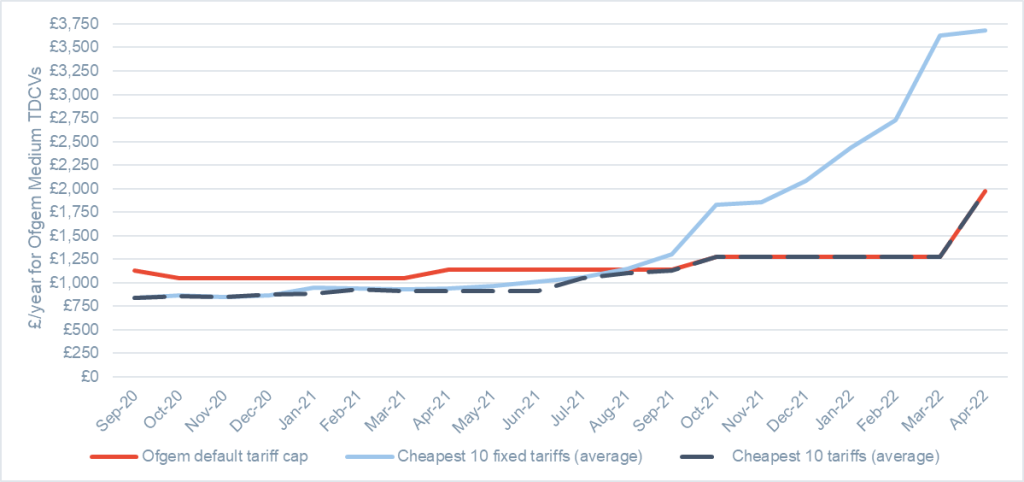Research from Cornwall Insight using data compiled by Comparison Technologies, has shown the average price of the cheapest ten fixed price deals for new direct debit customers in April was £3,685 a year, £1,714 more than the current Default Tariff Cap. The research shows that despite Aprils £693 Cap increase, suppliers’ standard variable tariffs continue to be the cheapest tariffs available to customers.
Only a year ago in April 2021 the cheapest ten fixed tariffs averaged £937 a year, demonstrating the unprecedented increases customers are facing. The high prices have seen a 52% increase in the number of customers now in debt to their supplier, with six million households owing an average of £1881.
While suppliers have been working to support customers through a range of direct and indirect measures, including increasing financial support funds or running energy saving campaigns to help customers reduce their usage, companies have said they are not able to address this problem alone and have called on the government to step in.
Cornwall Insight have predicted the Default Tariff Cap will rise significantly in October, putting pressure on the government and other stakeholders to increase support for consumers struggling to pay their energy bills.
Figure 1: The cheapest direct debit tariffs against the default tariff cap

Source: Comparison Technologies and Cornwall Insight
Alex Jephson, Analyst at Cornwall Insight said:
“Domestic energy consumers are currently stuck between a rock and a hard place. While predictions show the already record high Default Tariff Cap will inevitably increase in October, our research demonstrates there are currently very limited opportunities for new direct debit payers to switch to a cheaper fixed tariff.
“Many will see suppliers as the responsible party for delivering cheaper bills for their customers, however they are just one piece of a wider energy market and while they have been working to reduce costs for the many in fuel poverty, they cannot do this alone.
“There are several options open to the government and calls from suppliers for more targeted support for lower income families, a rise in the government’s Energy Bills Rebate, an increase to the Warm Homes Discount and the introduction of a deficit fund have all been forthcoming. Despite this, the Queen’s speech saw the government double down on its current levels of support through energy bills and council tax rebates, support which many, including suppliers, are adamant simply does not go far enough.
“Protecting vulnerable consumers from the impact of escalating energy bills should be top of the list for stakeholders in the industry, including the government. It is clear that there needs to be a review of financial support in the short-term, alongside longer-term energy market reform, if they are serious about supporting those in fuel poverty.”
References

